26 th November , 2019
“My work attempts to regain the things that were taking away from my people. Things such as power, culture, the idea of self, and the idea of being black and proud.” – Ludovic Nkoth
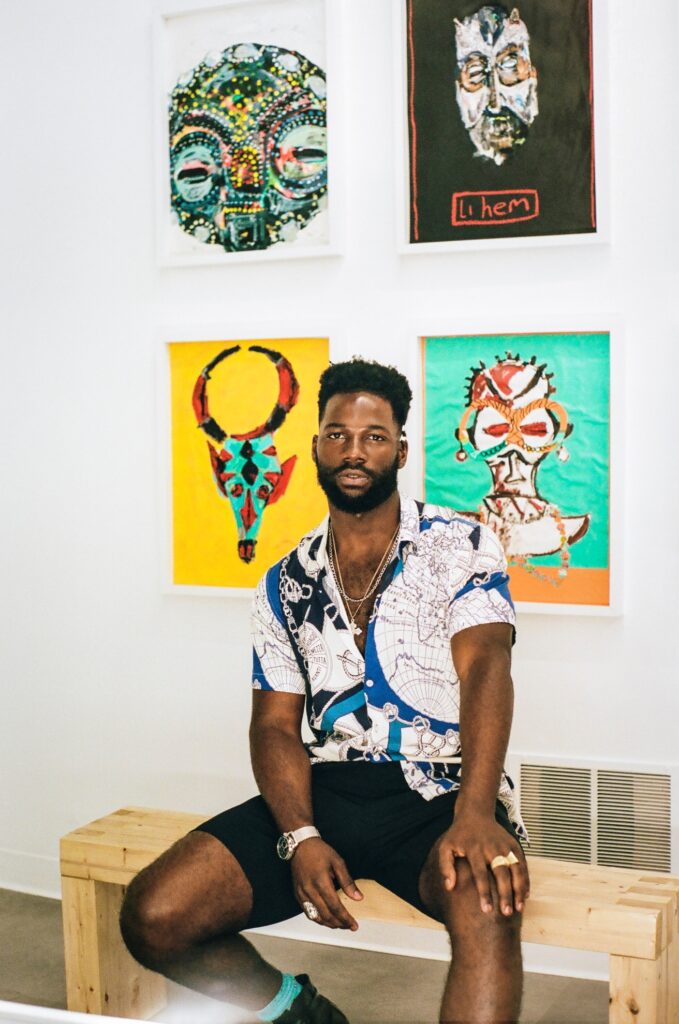
New York based artist Ludovic Nkoth’s work is heavily informed by life events which led him to move from his native home of Cameroon to the United States when he was 13. Leaving his birth-family and siblings, he found solace and comfort in the creative process while being raised primarily as “a stranger in a strange land”. It wasn’t until he migrated to the United States that he began to reconsider his own culture as a catalyst to locate his identity. For Ludovic, who learned to speak English as a teenager in a world completely alien to him, still, at times, he finds himself displaced in his adopted country. In the US he is viewed as an African, but in Africa, he is viewed American—leaving the passionate young artist in a sort of ambiguous and cyclical displacement of identity. Given the contentious issues of identity, patriotism, Confederate ideologies and racial bias growing in the States in this contemporary moment, his paintings that present his perspective become increasingly relevant.
As such, the work presents a complex but highly personal investigation of a very personalized view of Africa; his family history; and the cultures, traditions, and ideas of Africa and its diaspora pre-and post-colonialism. They are approached with a type of naive brusqueness, an immediacy and boldness of color that suggests both a passion and sense of discovery. African symbols such as masks, patterns, and other symbols of identity and culture remain consistent throughout.
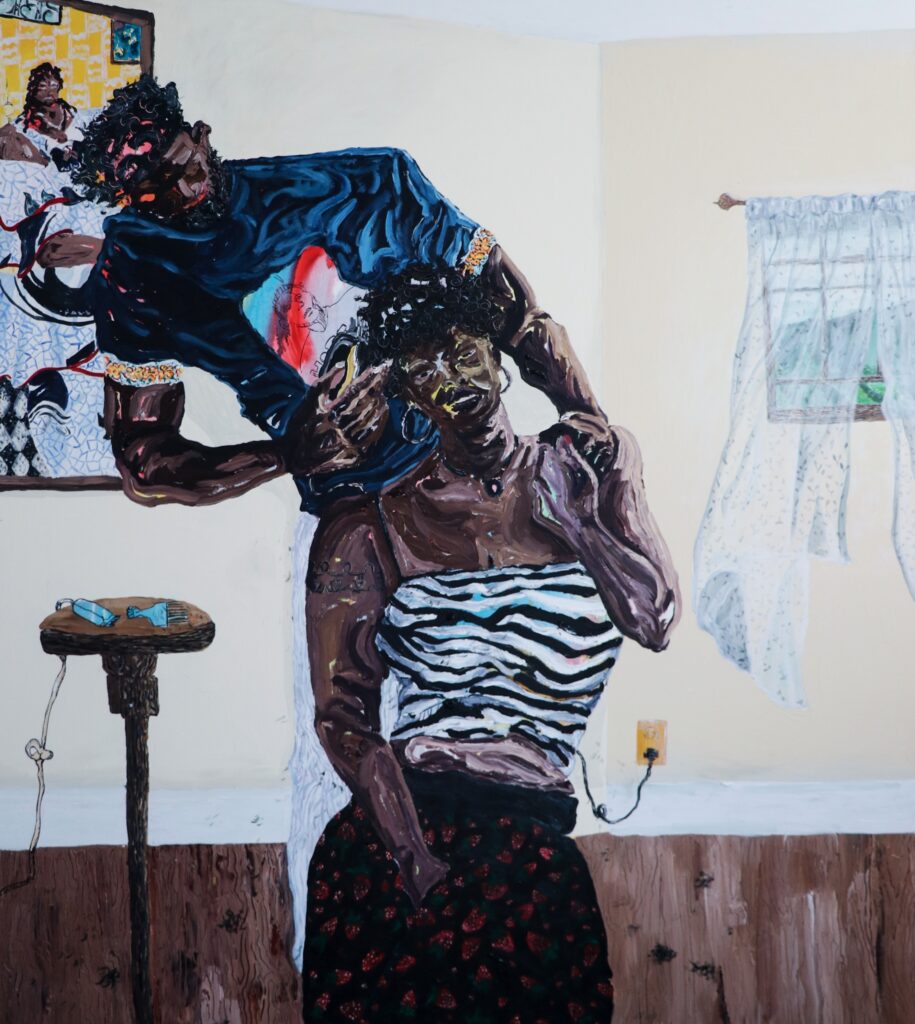
ArtX: Tell us about you as a person.
Ludovic Nkoth: I prefer to be called Ludovic which is my birth name, but while going to school down south some friends of my started calling me Luda and that stuck till this day. I’m originally from Cameroon where I was born and left for the United States at the age of 14. As a person I like to think I’m genuine, caring and always up for a good time. I am currently based in New York City.
How long have you been practicing art professionally, and when did you consider yourself a real artist?
I honestly started considering myself a “professional artist at the age of 18. I was still in high school, but this was around the time that I went out and got a studio for my craft. And around this time I was also doing small shows around the south. So to answer that question I’ve been practicing art professionally since the age of 18.
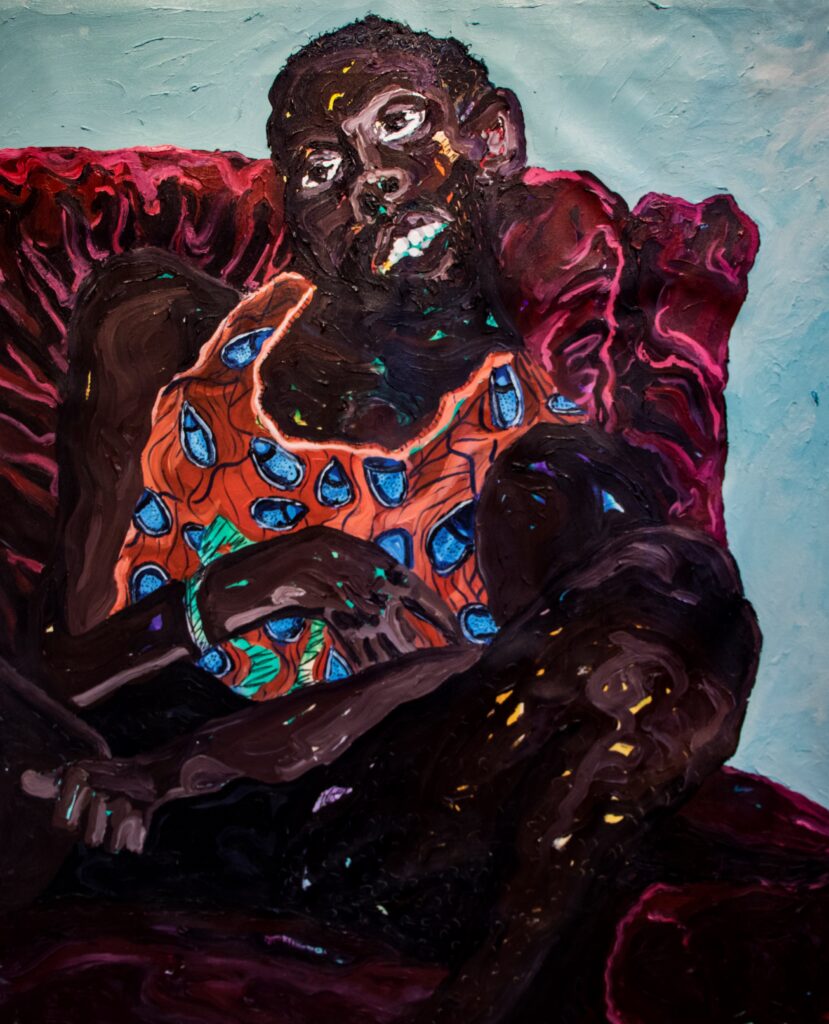
Tell us about your training, both formal and informal.
Growing up art wasn’t something that was part of our family’s culture. The idea of being an artist wasn’t ever mentioned and was almost taboo. I went to a small college for undergrad. This college was so small that they didn’t have a budget for a BFA degree, so I took whatever art classes they had to offer and made the best of it. I wasn’t exposed to art school until I started my MFA at Hunter College in New York, and it took some time to adjust. So my training before this was purely from my love and urge to create, I always went to book stores and picked a few books on drawing and started sketching.
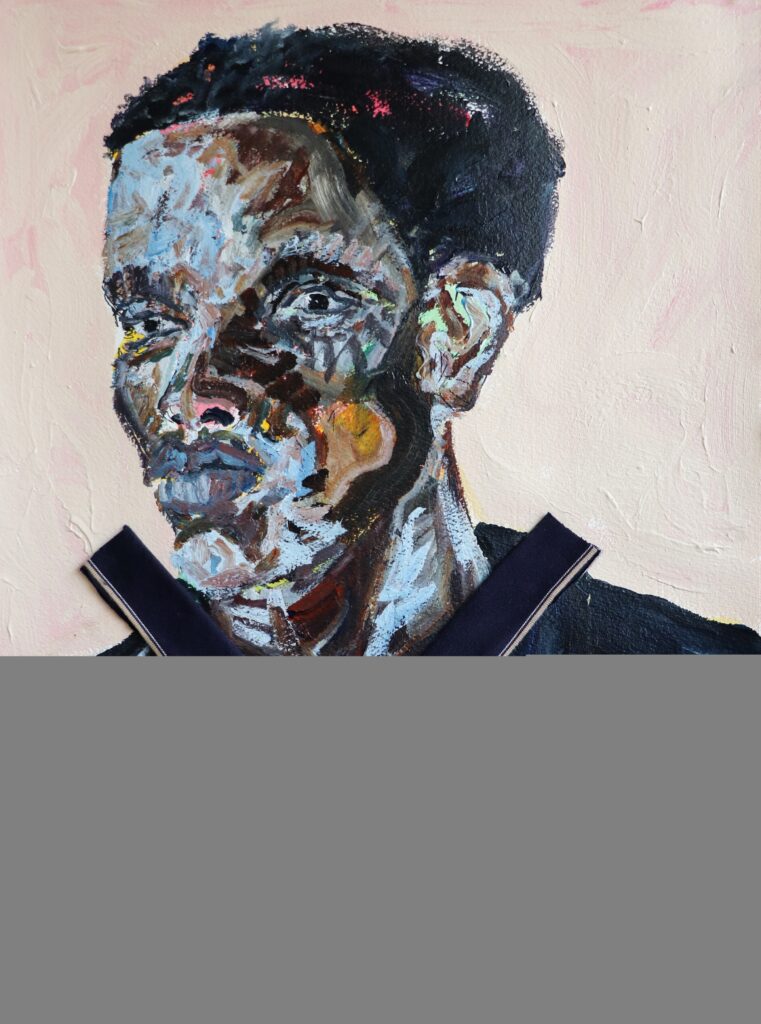
What medium do you prefer to work with?
My preferred medium is acrylic paint on canvas. I love acrylic first of all because unlike oil, it won’t kill you slowly. But acrylic is fun to play around with, and I always find new things about the paint when I’m in the studio. It dries so fast and just that excites me making me move faster and more instinctively than I usually would. When you know that you only have a few minutes before a certain spot dries your body just takes over. You start painting without second thoughts which to me results in pure and refreshing marks.
Who are some of your art inspirations? What are some of your non-art inspirations?
I can’t say I have any non-art inspiration because I just live everything art and what the human hands can do. For some of the artists I find myself thinking about when I’m in the studio, Charles White and Kerry James Marshall are at the very top of the list. I have so many that I could name but that may take too long.
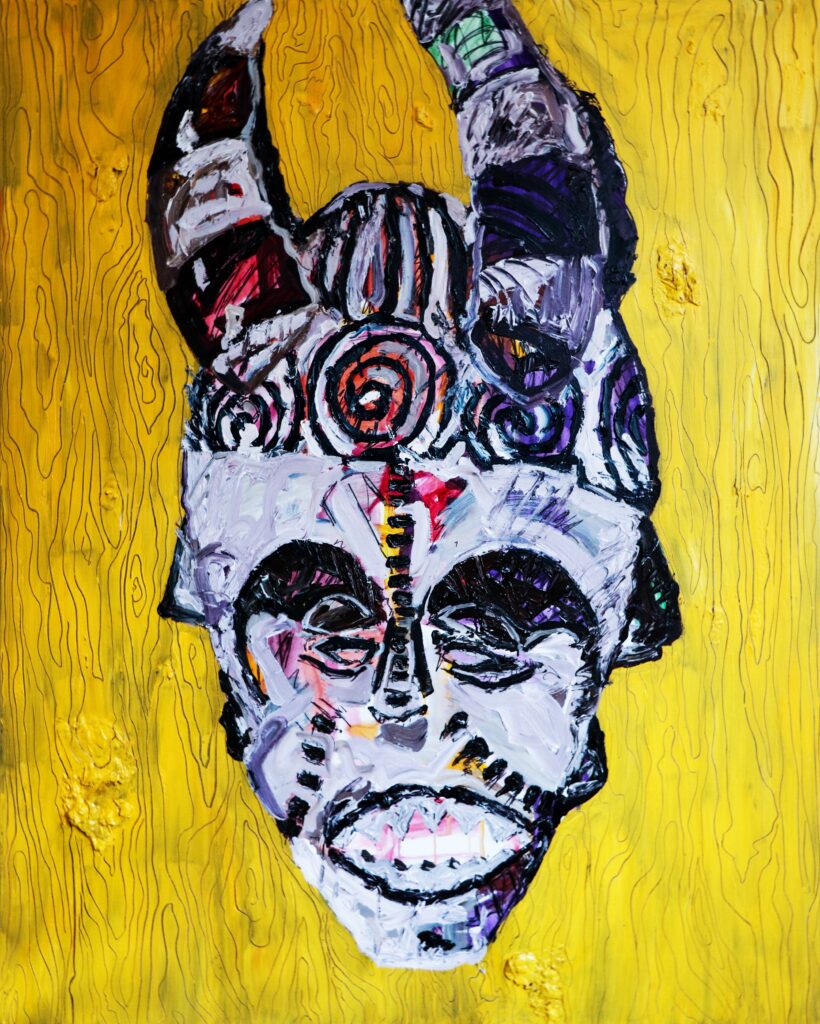
When do you know when a work is finished?
Till this day I still ask myself this question. I would say I know when a work is finished when whatever step I think of making next won’t add anything valuable to the piece. I don’t believe in overworking a piece, I just move on to the next.
Tell me about your process when working. Do you listen to music or perform any rituals to get yourself ready to make art?
This is hands down my favorite question! Yes, I have a “ritual”. I begin by researching on whatever feeling I want to depict in the piece I’m starting on. I then move to the sketchbook to figure out composition, color, and all the small details. My set up in the studio is always the same and has been for a long time! I lay out a bag of dry roasted peanuts, a glass of red wine (usually something dry but easy to drink) and then this is the most important part. The music!! I turn on Lil Wayne ALWAYS! My friends hate me for this, but it is what it is. I love his music and how creative he gets with the English language and his wordplay
. With all these things present in the studio I can be locked in there for 24 hours no lie!
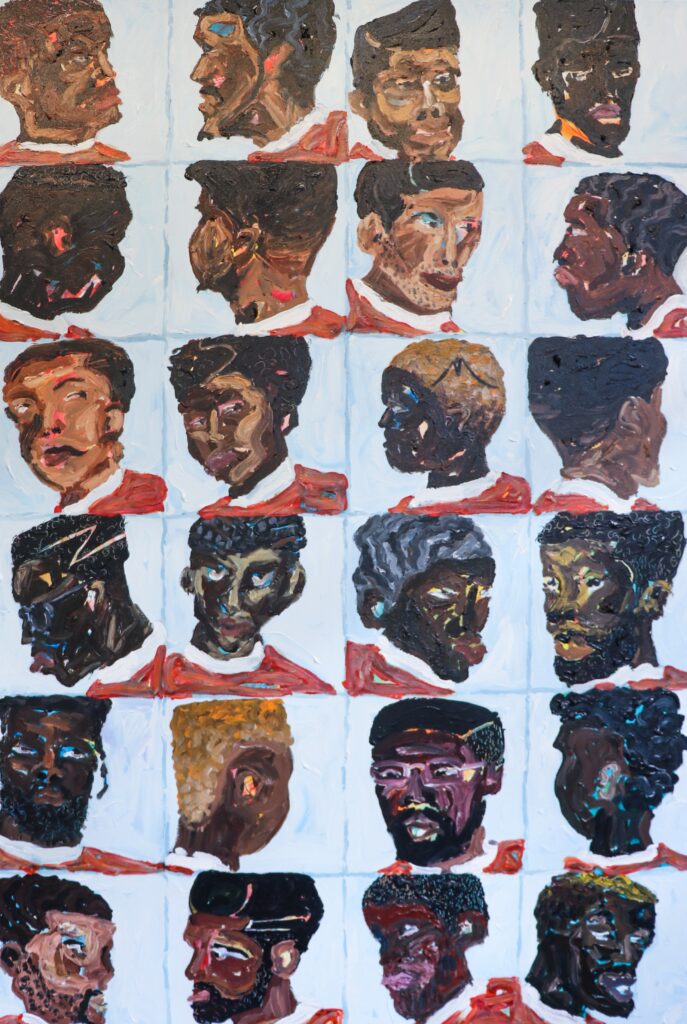
What are the meanings and the concepts behind this particular body of work?
My work explores the displacement of black bodies in alienating spaces. With a focus on pre- and post-colonial Africa. Painting in the land that took my people’s power, I reclaim it! Existing in a culture that seeks to erase mine I sometimes struggle to hold on to my culture and the things I was born into.
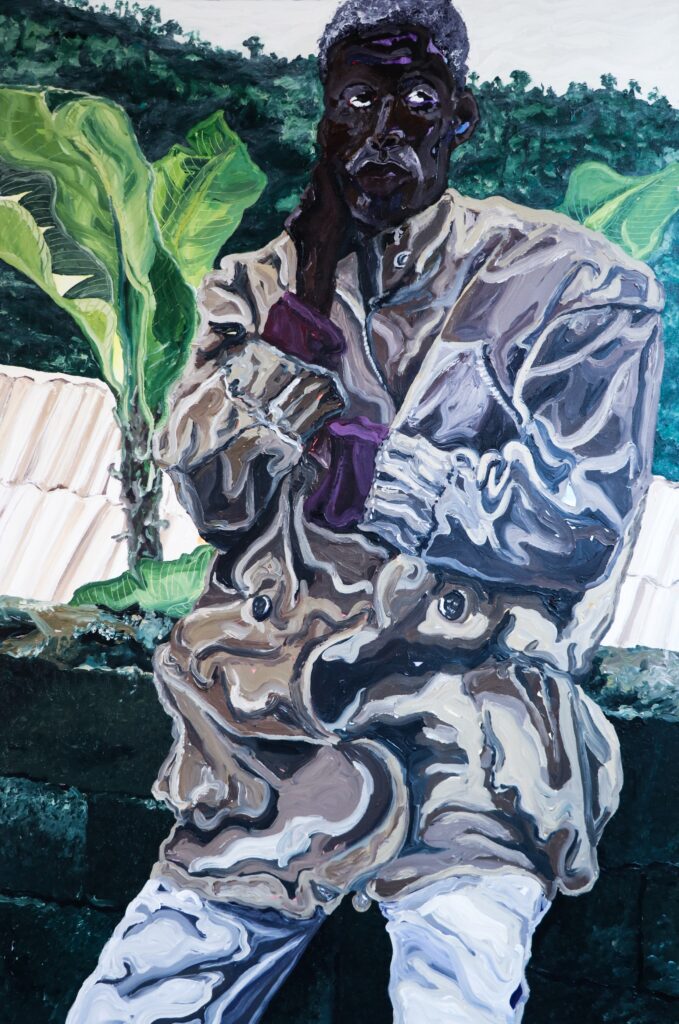
What do you want viewers would take away from your work?
The first thing I want the viewers to take from the work is the beauty of the black skin and the things this skin stands for. I always seek to educate through my work because I understand I’m from a part of the world that isn’t written in many history books; so my aim is always to inform.
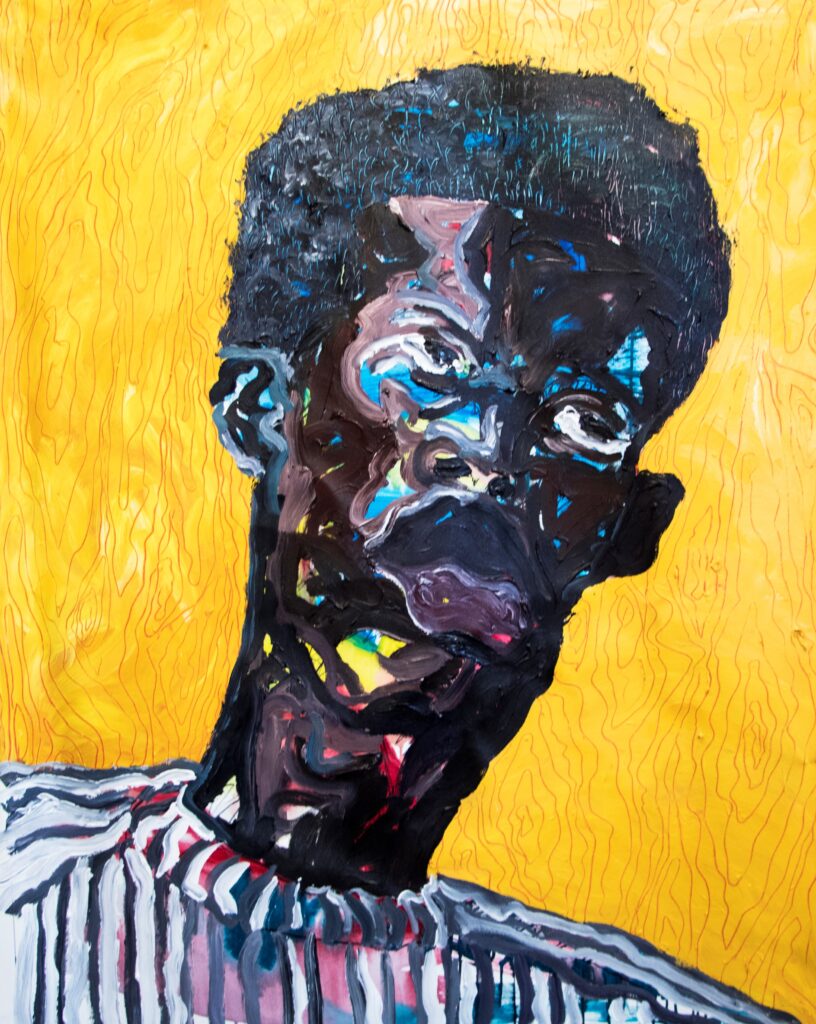
What are your biggest goals as a visual artist? And what has been your proudest moment professionally?
My ultimate goal as an artist is to be the best artist I can be and to paint and create as long as I can. Some of my proudest moments have been my parent’s reaction to my success in the arts. Like I said earlier, being an artist in my culture is not something that’s smiled upon, so just the fact that my parents can think of me as an artist, and accept art as a career, really makes me happy.
Experience more of Ludovic Nkoth’s work on his website
Follow Ludovic Nkoth on Instagram at @lnkoth